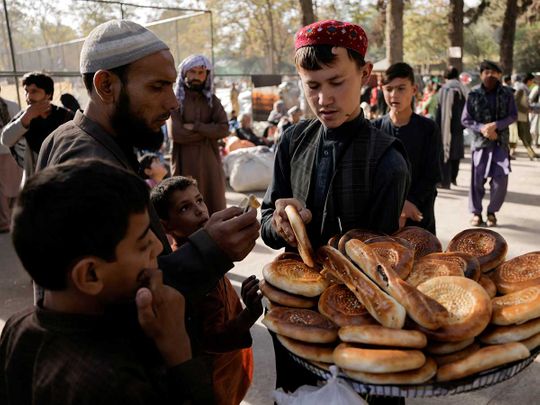
Islamabad: Pakistan has urged the international community to continue its economic engagements with Afghanistan to avert another humanitarian disaster in the region and unblock the Afghan financial assets.
Pakistan’s special representative for Afghanistan, Ambassador Muhammad Sadiq, called for the need for extending humanitarian aid and economic support to Afghanistan at the international conference in Moscow attended by officials from key regional countries.
Ambassador Sadiq suggested three broad contours of engagement with Afghanistan including:
- Extending urgent humanitarian support to Afghanistan.
- To remain economically engaged to avert financial meltdown and de-freezing of Afghanistan’s foreign assets is critical.
- Enhance cooperation to address common challenges, such as combatting terrorism, transnational crime and border management.
“The International community must not abandon Afghanistan at this critical juncture. Our collective voice should reinforce our message of a peaceful, stable and prosperous Afghanistan,” he said. Ambassador Sadiq also put emphasis on not allowing Afghan soil to be used against any other country. He said that peace in Afghanistan would benefit the entire region in terms of stability, secure borders, enhanced connectivity, return of refugees and countering terrorism.
An unstable Afghanistan is viewed by Pakistan as a national security issue. Pakistan, which has hosted over three million refugees for over 40 years, fears that more refugees would come in search of assistance if the international community does not respond to the immediate humanitarian needs of Afghanistan.
The third meeting of the ‘Moscow Format’ hosted by Russia, was attended by China, Pakistan, Iran, India, Kazakhstan, Turkmenistan, Uzbekistan, Tajikistan and Kyrgyzstan and a high-level Afghan delegation.
At the summit, Russia’s foreign minister Sergey Lavrov, emphasised the need for the formation of an inclusive government to achieve peace and stability and commended the Taliban on their efforts to stabilize the military-political situation.
In the joint statement, the participating countries said that they would engage with Afghanistan and described the Taliban as the “new reality” despite the absence of official recognition by the international community. The regional countries called on the current Afghan leadership to take further steps “to improve governance and to form a truly inclusive government that reflects the interests of all major ethnopolitical forces in the country.”
The Moscow format welcomed the Taliban’s reaffirmed commitment to prevent the use of Afghan territory against any state and expressed readiness “to continue to promote security in Afghanistan to contribute to regional stability.”
They also proposed to convene “a broad-based international donor conference” under the auspices of the United Nations to shoulder the burden of economic and financial reconstruction and development of Afghanistan.








